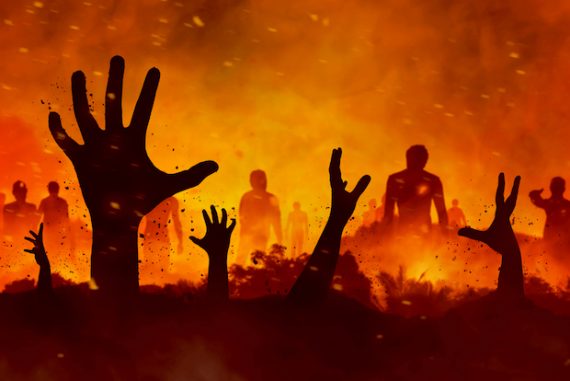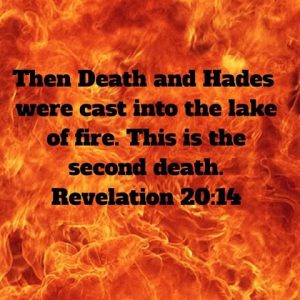 Revelation 20:6, 14 and Revelation 21:8 describe an event called “the second death.” It is contrasted with those who did not participate in “the first resurrection,” which is the resurrection of all believers at the return of Jesus Christ. Those who are not believers end up experiencing the second death.
Revelation 20:6, 14 and Revelation 21:8 describe an event called “the second death.” It is contrasted with those who did not participate in “the first resurrection,” which is the resurrection of all believers at the return of Jesus Christ. Those who are not believers end up experiencing the second death.
So what is this second death?
To put the question another way, if Hebrews 9:27 says that it is destined for humans to die once, then how can John write in Revelation 20:6, 14 and Revelation 21:8 that there is a second death?
Here is what Revelation 20:6, 14 and Revelation 21:8 say about the second death:
Blessed and holy is he who has part in the first resurrection. Over such the second death has no power … Then Death and Hades were cast into the lake of fire. This is the second death. … But the cowardly, unbelieving, abominable, murderers, sexually immoral, sorcerers, idolaters, and all liars shall have their part in the lake of fire which burns with fire and brimstone, which is the second death.
The “Second Death” is not Annihilation
Some argue that the second death is annihilationism … that is, a person who experiences the second death will no longer exist in eternity. They say that at the first death, people die physically, and then at the second death they die spiritually, which means that they cease to exist.
This view would be possible if “death” means “non-existent.” But it doesn’t. The word “dead” never means “non-existent” in Scripture.
Instead, “death” means to be separated from the plan and purposes of God.
When something dies, it no longer functions the way God intended. This is true of physical bodies, sexual reproductive organs, interpersonal relationships, and faith.
So here in Revelation 20:6, 14 and Revelation 21:8, the person who experiences the second death will not be living out God’s plan and purposes for them in eternity.
The second death is simply being separated in eternity from what God originally wanted and planned for humanity.
God wanted humans to live in perfect harmony and unity with Himself, each other, and all creation. But when a person dies apart from Jesus Christ, they will experience eternity apart from Jesus Christ as well.
Then how is the Second Death related to the Lake of Fire?
While John describes this eternal existence apart from Jesus Christ as “the lake of fire,” this does not mean that the unregenerate are swimming around in a lake of fire and brimstone any more than anyone who lives in “Salt Lake” is actually swimming around in a large, salt-filled lake in Utah.
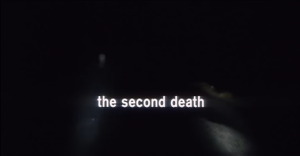 The “Fiery Lake” might be the place that unregenerate people live for eternity, but this does not necessarily mean that they are suffering and burning for eternity within the lake. Furthermore, as I point out in my forthcoming book on hell, the term “Lake of Fire” referred to the body of water we now call the Dead Sea.
The “Fiery Lake” might be the place that unregenerate people live for eternity, but this does not necessarily mean that they are suffering and burning for eternity within the lake. Furthermore, as I point out in my forthcoming book on hell, the term “Lake of Fire” referred to the body of water we now call the Dead Sea.
So to say that someone was going to be case into the Lake of Fire, or the Dead Sea, is a symbolic or metaphorical way of saying that such people will end up in a place devoid of life.
This is what John goes on to describe. In the afterlife, as part of the second death, people will be subject to the same “lusts of the flesh” that humans are subject to right now here on earth. Just like in this life, people who live in the second death will be cowardly, unbelieving, abominable, murderers, sexually immoral, sorcerers, idolaters and liars.
So what is the Second Death?
The second death is not annihilation or eternal torment in flames of fire.
Instead, it is the continuation for eternity of what we experience in this life, but in an amplified way.
It consists of God allowing human beings to live life completely separated from Him. It is allowing them to live as slaves to hatred, violence, envy, immorality, deception, greed, lust and every evil thing.
As such, the second death is the opposite of eternal life. Eternal life is life lived as God always wanted, planned, and desired; eternal death (or the second death) is life lived in the complete opposite way, separated from everything that God intended for humanity.
It is existence in everlasting death. It is ongoing existence that is filled with all the problems and frustrations of this life, but without any end to them. The first death is a blessed escape from the frustrations of this life (which is why death is a blessing). But the second death has no end. It is an eternal existence without an end, while facing the frustrations of life lived without God.
 Just as being “born again” does not mean to “start your life all over again,” but instead refers to the transformation of a person’s life so that they head in the direction God wanted, so also, to “die again” does not mean that a person dies a second time, but that a person’s life goes in a direction that is even further away from God wanted and desired.
Just as being “born again” does not mean to “start your life all over again,” but instead refers to the transformation of a person’s life so that they head in the direction God wanted, so also, to “die again” does not mean that a person dies a second time, but that a person’s life goes in a direction that is even further away from God wanted and desired.
The “second death” therefore, is not annihilation, or the death of the eternal soul. Instead, it is the act of being entrenched or solidified in the way of rebellion against God.
The second death is an irreversible step on a path that leads away from what God wanted and desired.
Did C. S. Lewis write about Hell?
C. S. Lewis’ theological fantasy book, The Great Divorce, depicts what this sort of everlasting death might look like. (He claims he was writing fiction … but was this really his view of hell and he was afraid of being called a heretic?)
The Great Divorce is a fascinating story of a man who gets on a bus in hell to take a trip to heaven. In the second chapter, Lewis describes what life is like for those who live in hell.
When people first arrive, Lewis writes that people find themselves in the center of a vast, sprawling town, which is very much like any town you mind find on earth, except that everything is free and nobody has any needs. So people move into any house they want, and start living in their new existence. But within a few days or weeks, they have a quarrel with one of their neighbors, and decide to move to a different street.
Lewis writes that this process continues forever, until some people get to the point where they live millions of miles away from anybody else.
In the everlasting second death, each person is allowed to be as selfish and mean as they want, and this causes them to eventually separate themselves from everyone else so that they finally live in complete isolation for all eternity, wrapped up in their own thoughts of everybody else’s faults and failures.
The Second Death is Everlasting Existence without God
In this life, there is an end to the choices we make. As we destroy our families, friendships, and health, we draw into ourselves and become more and more separated from others over time. Death stops this process of separation so that we can finally see ourselves and others as we really are, offer forgiveness and be forgiven, and begin to live in love and grace as God desires.
But in an eternal existence without God, where physical death is not an option, people will continue to separate themselves until eventually, they cut off all contact from everyone, and live solitary lives of self-centeredness and complete separation. For people who were created for community and relationships, this truly is a living hell. But it is a hell constructed by their own choices.
So just as eternal life is a life lived in eternity where we live life to its full potential, so eternal death, or the second death is a life lived in eternity where people achieve none of their potential. It is a life of everlasting death. Of no escape from the consequences of selfish human decisions.
Those who experience the eternal second death (living in the realm of death, but never dying) are living in a hell of their own making. Their eternal existence will be a life dominated by the sins mentioned in Revelation 21:8.
In eternity, where there is no death to deliver a person from the devastation they have brought into their lives, this ongoing death will simply continue forever and ever.
What are your thoughts about this concept? Do you agree? Disagree? Does it still sound like “hell” to you? Is it just and fair for God to let people live in eternity in such a way? Would annihilation be more loving?
 Understanding the Gospel requires us to properly understand the key words and terms of the Gospel. Take my course, "The Gospel Dictionary" to learn about the 52 key words of the Gospel, and hundreds of Bible passages that use these words.
Understanding the Gospel requires us to properly understand the key words and terms of the Gospel. Take my course, "The Gospel Dictionary" to learn about the 52 key words of the Gospel, and hundreds of Bible passages that use these words.
This course costs $297, but when you join the Discipleship group, you can to take the entire course for free.


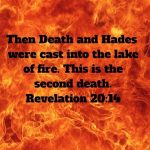

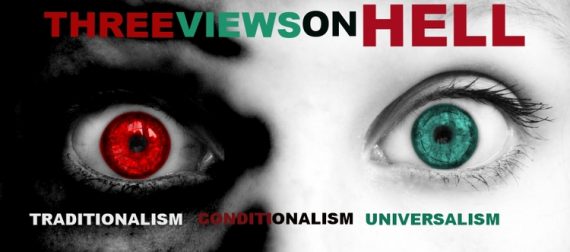
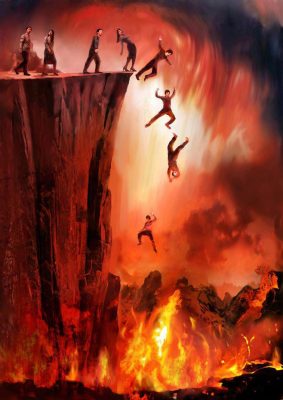 However, the Annihilationist also agrees with the Universalist that it would be monstrous for God to torture people for all eternity. The biblical texts which seem to imply an eternal existence in fire are instead understood as texts that describe an eternal destruction so that those who undergo it simply cease to exist.
However, the Annihilationist also agrees with the Universalist that it would be monstrous for God to torture people for all eternity. The biblical texts which seem to imply an eternal existence in fire are instead understood as texts that describe an eternal destruction so that those who undergo it simply cease to exist.